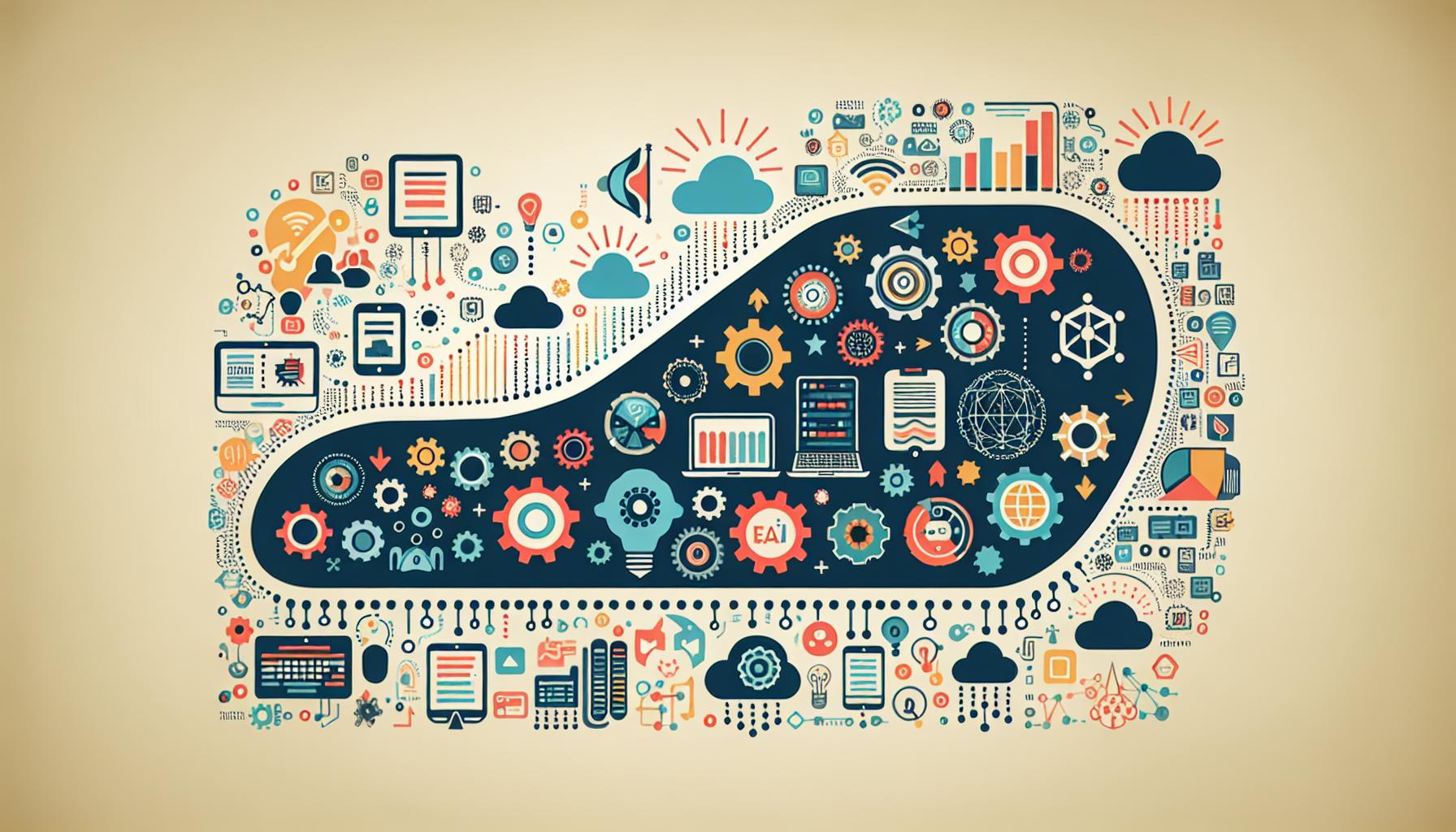From SAAS to AI-Powered Operations: Embracing the Evolution in Business Tools

Introduction
The business landscape has undergone significant transformations over the past few decades, with technological advancements at the helm of this evolution. One of the most notable shifts has been the transition from traditional Software as a Service (SAAS) models to the integration of advanced AI-powered applications. This article aims to trace this evolution, highlighting how businesses have moved from relying on singular solutions to employing multiple web apps and websites for various operations. Moreover, it envisions a similar trajectory with AI technologies, emphasizing the necessity for platforms like Raia that can manage and coordinate these AI agents seamlessly, ensuring business agility and innovation.
The Evolution from SAAS to AI-Powered Applications
Software as a Service (SAAS) has been a cornerstone of business operations for years. It allowed companies to access software over the internet, eliminating the need for on-premises installations and reducing costs. Businesses could subscribe to software solutions tailored to their needs, enhancing efficiency and productivity. However, as the digital landscape evolved, so did the requirements of businesses. The rise of web applications and the need for more specialized tools led to the adoption of multiple web apps and websites for various operations.
Today, we are witnessing another significant shift - the integration of AI-powered applications. Unlike traditional SAAS, AI applications offer more than just software solutions; they bring intelligence and automation to the table. AI can analyze vast amounts of data, make predictions, and even perform tasks that typically require human intervention. This shift is not just about replacing old tools with new ones; it's about enhancing capabilities and opening new avenues for innovation.
Case Studies: AI in Action
AI Agents in the Automotive Industry
Consider a car company that has deployed AI agents in every vehicle. These AI agents are responsible for diagnostics and customer service. They continuously monitor the vehicle's performance, predict potential issues before they become serious problems, and provide real-time assistance to drivers. If a driver encounters a problem, the AI agent can offer immediate solutions or direct them to the nearest service center. This not only enhances the customer experience but also reduces downtime and maintenance costs.
AI in the Insurance Sector
Another compelling example is an insurance provider using AI agents to assist clients. These AI agents can handle a variety of tasks, from answering customer queries to processing claims. They can analyze customer data to offer personalized insurance plans, detect fraudulent activities, and streamline the entire insurance process. By leveraging AI, the insurance company can provide faster, more efficient services, improving customer satisfaction and operational efficiency.
The Role of Platforms like Raia
As businesses increasingly adopt AI-powered applications, the need for platforms that can manage and coordinate these AI agents becomes crucial. This is where platforms like Raia come into play. Raia offers a comprehensive solution for managing multiple AI agents, ensuring they work seamlessly together to achieve business objectives. It provides a centralized platform where businesses can deploy, monitor, and optimize their AI agents, enhancing their overall effectiveness.
Raia's platform ensures that AI agents are not working in silos but are integrated into the broader business ecosystem. This integration is vital for maintaining business agility and fostering innovation. By providing a unified platform for AI management, Raia enables businesses to harness the full potential of AI, driving growth and competitive advantage.
Conclusion
The transition from traditional SAAS models to AI-powered applications marks a significant milestone in the evolution of business tools. As businesses continue to embrace AI, the need for platforms like Raia that can manage and coordinate these AI agents seamlessly becomes increasingly important. By leveraging AI, businesses can enhance their capabilities, improve efficiency, and drive innovation. However, this transformation also raises several key questions. How can businesses ensure the ethical use of AI? What measures can be taken to address potential biases in AI algorithms? How can businesses balance automation with the need for human intervention?
In summary, the journey from SAAS to AI-powered operations is not just about adopting new technologies; it's about reimagining business processes and strategies. As we move forward, platforms like Raia will play a pivotal role in ensuring that businesses can navigate this complex landscape effectively. For businesses looking to stay ahead of the curve, embracing AI and leveraging platforms like Raia will be essential. To learn more about how AI can transform your business and how platforms like Raia can help you manage this transformation, consider exploring case studies, attending industry conferences, and engaging with AI experts.




